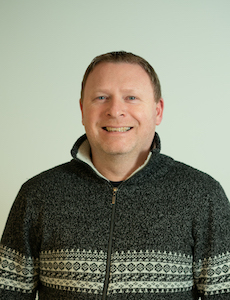Martin R. Larsen obtained his Ph.D. in Proteomics and Biological Mass spectrometry in 2000 from the Department of Biochemistry and Molecular Biology, University of Southern Denmark (SDU). After this, he spends a period at the Australian Proteome Analysis Facility, Sydney, Australia as a Danish Research Council sponsored postdoctoral fellow. In 2002 he returned to the Department of Biochemistry and Molecular Biology at SDU and has since 2005 headed his own research group at SDU. In 2006 he became Associated Professor and was appointed full Professor in 2011. In 2009 he received the prestigious Junior group leader fellowship from the Lundbeck Foundation. Martin R. Larsen is internationally recognized for method development for characterization of post-translational modifications (PTMs) of proteins and in bridging biological mass spectrometry and biomedical research. He has developed several methods that are used world-wide to investigate the role of PTMs in signaling pathways in cellular biology. His research group is primarily working on signaling in the areas of neurobiology and pancreatic beta-cell biology and diseases associated with these areas. Recently, he has introduced 3D brain organoids in his laboratory as a model system for studying brain development and neurological diseases and is heading the Lundbeck Foundation sponsored project DEVELOPNOID aiming at use brain organoid to study brain development and psychiatric disorders such as Schizophrenia. Martin R. Larsen has supervised and mentored more than 50 Master, Ph.D. students and postdocs and in 2014 he received the prestigious Danish Elite Research Award for his contribution to science in Denmark.
Head of research: Professor, PhD Martin Røssel Larsen
Martin Røssel Larsen is also head of Centre for Clinical Proteomics.
Researchers and research group: Martin Røssel Larsen Lab
A complete list of publications by Martin Røssel Larsen can be found here.
Part of the Research section of Biomedical Mass Spectrometry at the Department of Biochemistry and Molecular Biology
